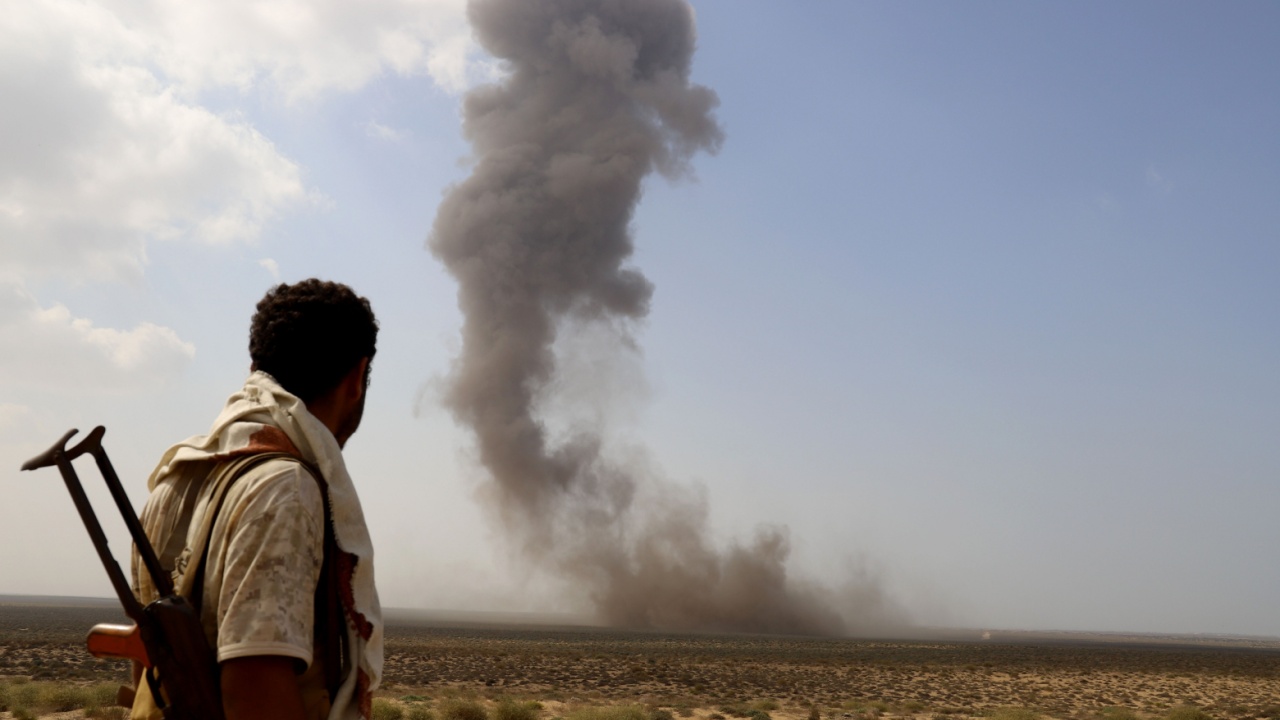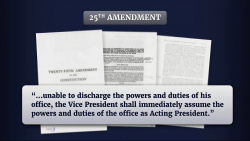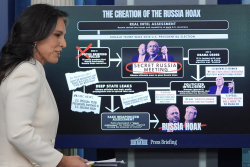
A Deal with the Houthis Is No Deal at All
Until the Houthis see the costs of their aggression, the Yemeni Islamist group will continue to threaten stability in the Red Sea.
While Iran and Hezbollah are licking their wounds after costly clashes with Israel, one of Tehran’s deadliest proxies continues to rain down missiles on the Jewish state. On July 22, the Yemeni Houthis fired a ballistic missile at Ben Gurion Airport, following another launch just four days earlier. These are not isolated provocations. They are a clear signal: the Houthis are not deterred.
Washington’s response has followed a now-familiar pattern—one that has failed time and again. Like Saudi Arabia before it, the United States has pursued a diplomatic track, offering ceasefires and incentives in the hope that the Houthis will stop. However, history tells us otherwise: the Houthis treat every pause as an opportunity to rearm, regroup, and return to the battlefield stronger.
Instead of appeasement, the United States should adopt a persistent campaign of sanctions, diplomatic pressure, and, when necessary, military force. Anything less invites more bloodshed.
This is not just Israel’s problem. The Houthis have launched dozens of attacks on civilian shipping in the Red Sea, causing chaos in global supply chains and threatening one of the world’s most vital maritime corridors. These attacks challenge the US commitment to defend freedom of navigation—a cornerstone of global prosperity since the end of World War II.
In May, Washington helped broker a ceasefire through Oman. The goal was straightforward: end attacks on international shipping. But within weeks, the Houthis shattered the agreement. On July 7 and 9, they struck two cargo vessels, killing three sailors and reportedly taking six others hostage.
Saudi Arabia, too, once believed it could negotiate with the Houthis. After entering Yemen’s civil war in 2015 to defend the internationally recognized government, Riyadh found itself locked in a grinding stalemate. The conflict devolved into one of the world’s worst humanitarian disasters, and the backlash was swift.
By 2020, American public opinion toward Saudi Arabia had hit historic lows. As a candidate, Joe Biden promised to make the Saudi government a “pariah.” As president, he curtailed arms sales and revoked the Trump-era designation of the Houthis as a Foreign Terrorist Organization.
However, while Biden softened US policy toward the Houthis, the Houthis did not reciprocate in kind.
As Ambassador Michael Ratney, the former US envoy to Saudi Arabia, noted on FDD’s Iran Breakdown podcast, Houthi attacks on Saudi cities, airports, and energy infrastructure did not just inflict present-day damage—they jeopardized the kingdom’s long-term development plans.
In 2022, Riyadh struck a six-month ceasefire deal with the Houthis and, notably, refrained from retaliation even after the Houthis launched drone strikes on critical Yemeni infrastructure. Saudi Arabia’s new regional doctrine is clear: de-escalate, do not escalate.
But this doctrine only works if the enemy shares that goal. The Houthis do not. They have stalled peace negotiations, imposed an oil embargo on Yemen, and continued to smuggle advanced weaponry—including missile components—from Iran.
Worse, the Houthis expanded their aggression after Hamas attacked Israel on October 7, 2023. They fired missiles at Israel, hijacked the Galaxy Leader and its 25-person crew, and launched more than 100 attacks on commercial ships. Between October 2023 and January 2025, they fired hundreds of projectiles at Israel—all while enjoying their truce with Saudi Arabia and deepening their capabilities.
To its credit, the United States responded in March 2025 with Operation Rough Rider, a military campaign that struck more than 1,000 targets, eliminated key Houthi leaders, and degraded the group’s operational strength. But by early May, Washington was once again seeking a ceasefire. President Donald Trump declared he would “take their [the Houthis’] word” that they would stop attacking ships.
Two months later, that word is worth nothing. The Houthis are back to killing civilians and taking hostages.
This is the real cost of “de-escalation at all costs.” It sends the message that violence brings rewards—and that violating a ceasefire with the world’s most powerful military has no real consequences. The Houthis know that as long as they offer vague assurances, the United States will hesitate to act decisively.
We have seen this playbook before—with Iran itself. For years, Tehran strung along the international community with endless nuclear negotiations while advancing its weapons program. Then, in a stunning shift, Trump backed Israeli airstrikes on Iranian nuclear infrastructure and ordered US bombers to take out three key targets when Tehran missed his deadline for a deal.
That kind of credibility matters. But credibility requires readiness. The United States must be prepared to act when diplomacy fails. It must dictate the pace—not let the Houthis or Iran do so.
Until the Houthis believe there is a real price for their aggression—a price in sanctions, in military costs, in diplomatic isolation—they will continue down the path of war. Ceasefires should be earned, not gifted. And deals with terrorists are no deals at all.
About the Authors: Mark Dubowitz and Koby Gottlieb
Mark Dubowitz is the chief executive of the Foundation for Defense of Democracies (FDD) and host of the “Iran Breakdown” podcast. Follow him on X: @mdubowitz.
Koby Gottlieb is an FDD intern and student at Brandeis University
Image: Mohamed al-wafi / Shutterstock.com.
The post A Deal with the Houthis Is No Deal at All appeared first on The National Interest.


















